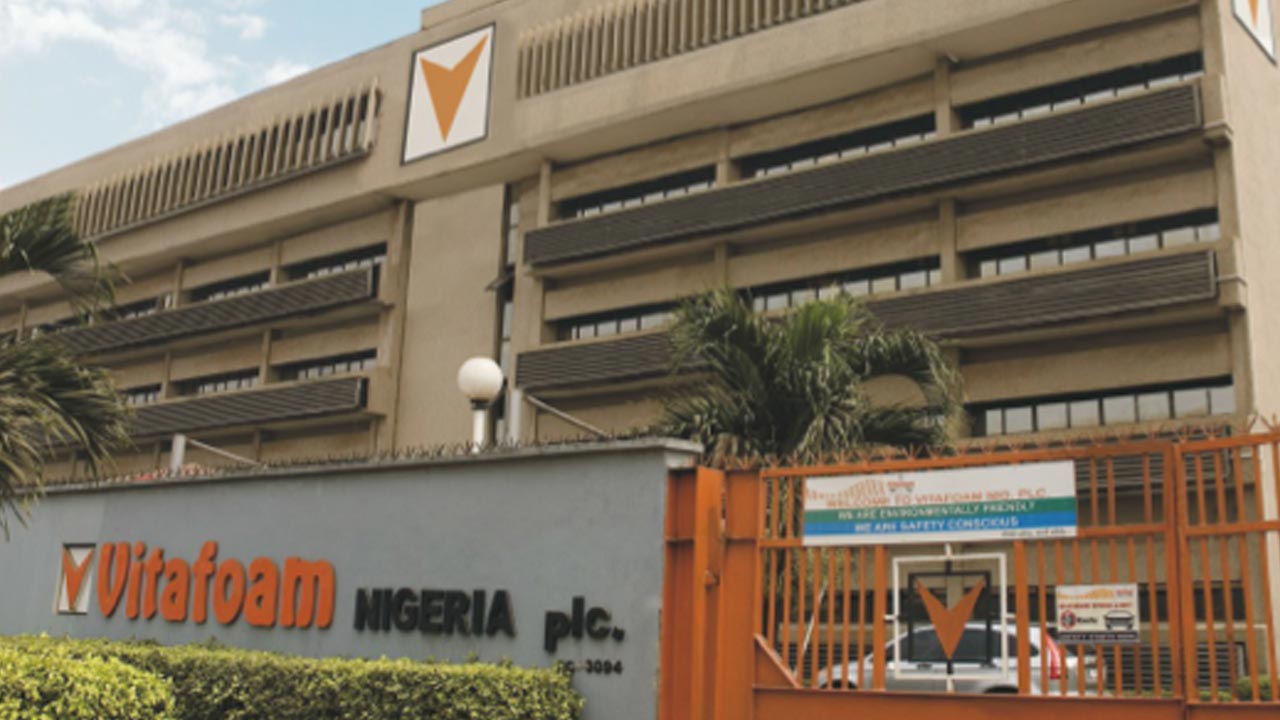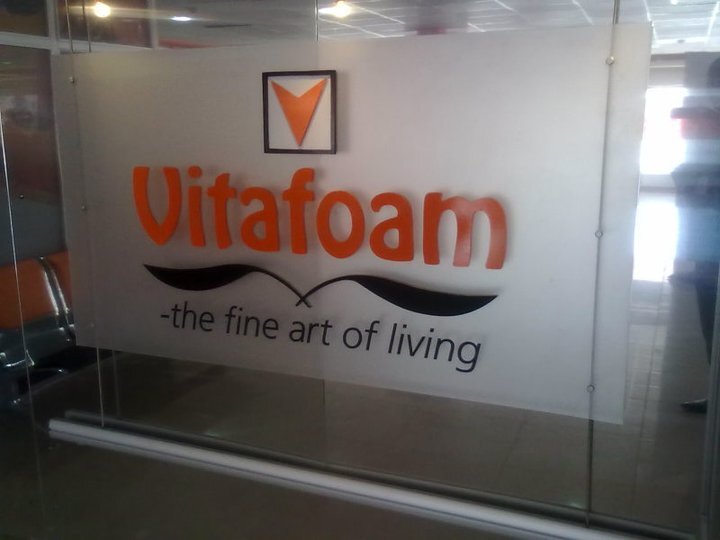Economy
Currency Swap Deal: CBN Lacks Transparency—Vitafoam Boss

By Dipo Olowookere
Managing Director of Vitafoam Nigeria Plc, Mr Taiwo Adeniyi, has accused the Central Bank of Nigeria (CBN) of not being transparent in its dealings with stakeholders in the industry.
Mr Adeniyi was quoted by Daily Sun as saying that the apex bank sometimes shows partiality when carrying out its policies.
He was reacting to the announcement made by the CBN Governor, Mr Godwin Emefiele, of the bank’s readiness to buy Commercial Paper (CP) from large companies in order to lend to them at single digit interest rate.
According to Daily Sun, some companies were still waiting for the policy document from the CBN on this.
When asked for his opinion of the issue, the Vitafoam chief said, “When they (CBN) are taking such decisions, they have certain companies they are working with. So, they know what they are doing. When they are taking such decisions they know which organizations can issue commercial paper.
“They know the people they want to use it to help. Even the Yuan they are talking about; has it started? Is it operational?
“The news has gone all over the world that we are doing currency swap. Who and who are benefiting from it? They should tell us.
“Even the commercial banks that know how to operate it, you will hear them say they are still waiting for CBN.
“And yet, it is in the news that they have started the currency swap. So, when they are taking decisions, they know the companies they are targeting to help. So they just push it under the guise of every one of us,” Mr Adeniyi was quoted as saying.
But reacting to the allegation of being biased and not transparent, spokesman of the central bank, Mr Isaac Okorafor, when he contacted by Business Post, said the apex bank has always been plain in its operations.
“Which aspect of the deal (currency swap) does he feel we are not transparent? Is it in the amount of the deal or the rate or the trading?
“On the former, anyone doubting us can crosscheck with the PBoC. On the latter, trading is open and transparent and dealers are allowed to quote whatever they like.
“However as in the rules of the market, anyone who makes an unreasonable quote will be punished by the extent of his or her deviation from the rate that we feel should clear the market.
“It is done to ensure that speculation is put at bare. We have just started this process and with time, we will perfect it,” Mr Okorafor told Business Post in a text message.
Also commenting on the intention of the CBN to buy CP from firm, Managing Director of Afrinvest Securities Limited, Mr Ayodeji Ebo, said the development was a form of quantitative easing and advised the apex bank to come up with structures that will make SMEs participate in it.
“This is a form of quantitative easing. The only reservation is that this will be mainly enjoyed by the blue chip companies due to the SMES inability to issue Commercial Paper. The CBN may need to come up with structures that will enable the SMEs take part in the quantitative easing as this segment is more critical to the growth of the economy,” he said.
The CBN Governor had said at the end of the last Monetary Policy Committee (MPC) meeting in Abuja that the apex bank would buy commercial paper from large companies to lend to them at single digit interest rate.
“The MPC deliberated extensively on what can be done to encourage banks to lend to the private sector because of the numbers we looked at during the main meeting. The MPC was concerned that credit to the real sector was sliding and there was need to incentivise the banks to lend to the private sector.
“At this meeting, we saw improvement which was gratifying, but we feel we must still do what we want to do. In order to achieve lowering interest rate especially to agriculture and manufacturing sectors, we will encourage large corporates to issue CP into the market. In order to complement the banks, we expect that the CP will come in single-digit of 9 percent or below 10 percent, and for a long tenor, as high as five years or seven years, with a two-year moratorium, and for specific purposes.
“If the CBN sees those kinds of notes in the market, we will complement the efforts of the banks through any mechanism to support that by lending to that corporate at that single-digit rate. It is not meant to be in competition with the banks, it is meant to complement their efforts. We want to see that our objective to see to it that we achieve lower interest rate of a single digit can come through this means.
“If a bank lends such money for new projects or plant expansion and it is verifiable, not for refinancing, a project for seven years inclusive of two years moratorium at 9 percent. That bank providing those evidence and verified by the CBN, we will go into bank’s Cash Reserve Ratio and we will release cash of the equivalent sum to that bank at zero cost. In which case, that bank will earn its spread of 9 per cent of that money.
“We feel this is novel. It is something that we should give a chance. In the past, we had reduced CRR and released liquidity into the market, but the liquidity was not channelled into the high-impact, employment-generating sectors and productivity sectors of the economy.
“That is why we feel we should approach it through this means. We believe this will work. We will, from time to time, monitor the level of liquidity in the market and we feel that rather than the banks using their monies to buy Treasury Bills, they can put money into these sectors. And we will provide the liquidity to fund these transactions, as long as they meet these specified terms and conditions.”
A commercial paper (CP) is an unconditional promise by a person to pay to the order of another person a certain sum at a future date.
Economy
Champion Breweries Concludes Bullet Brand Portfolio Acquisition

By Aduragbemi Omiyale
The acquisition of the Bullet brand portfolio from Sun Mark has been completed by Champion Breweries Plc, a statement from the company confirms.
This marks a transformative milestone in the organisation’s strategic expansion into a diversified, pan-African beverage platform.
With this development, Champion Breweries now owns the Bullet brand assets, trademarks, formulations, and commercial rights globally through an asset carve-out structure.
The assets are held in a newly incorporated entity in the Netherlands, in which Champion Breweries holds a majority interest, while Vinar N.V., the majority shareholder of Sun Mark, retains a minority stake.
Bullet products are currently distributed in 14 African markets, positioning Champion Breweries to scale beyond Nigeria in the high-growth ready-to-drink (RTD) alcoholic and energy drink segments.
This expansion significantly broadens the brewer’s addressable market and strengthens its revenue base with an established, profitable portfolio that already enjoys strong brand recognition and consumer loyalty across multiple markets.
“The successful completion of our public equity raises, together with the formal close of the Bullet acquisition, marks a defining moment for Champion Breweries.
“The support we received from both existing shareholders and new investors reflects strong confidence in our long-term strategy to build a diversified, high-growth beverage platform with pan-African scale.
“Our focus now is on disciplined execution, integration, and delivering sustained value across markets,” the chairman of Champion Breweries, Mr Imo-Abasi Jacob, stated.
Through this transaction, Champion Breweries is expected to achieve enhanced foreign exchange earnings, expanded distribution leverage across African markets, integrated supply chain efficiencies, portfolio diversification into high‑growth consumer beverage categories, and strengthened presence in the RTD and energy drink segments.
The acquisition accelerates Champion Breweries’ transition from a regional brewing business to a multi-category consumer platform with continental reach.
Bullet Black is Nigeria’s leading ready-to-drink alcoholic beverage, while Bullet Blue has built a strong presence in the energy drink category across several African markets.
Economy
M-KOPA Nigeria Plans Expansion to Edo, Others After N231bn Credit Milestone

By Adedapo Adesanya
Emerging market fintech firm, M-KOPA, has announced plans to deepen its reach in Nigeria to the South South and South East regions, starting with Edo this year, after providing N231 billion in credit to over 1 million customers in the country.
The firm released its first Nigeria-focused Impact Report, which showed that Nigeria is M-KOPA’s fastest-growing market and fastest to reach the milestone.
Since its foray into the Nigerian market in 2019, M-KOPA has been working to dismantle barriers to financial inclusion by providing flexible smartphone financing and digital financial tools that align with how people in the informal economy earn and manage their money.
It operates in six states in the country, including Lagos, Ogun, and Oyo, among others.
The report highlights the company’s contribution to income generation, digital inclusion and economic opportunity for Every Day Earners across the country.
The report showed that M-KOPA has enabled 290,000 first-time smartphone users, while 56 per cent of agents accessed their first income opportunity through the platform.
It showed high income and livelihood gains among its users, with about 77 per cent of customers leveraging smartphones or digital loans obtained through the platform to generate income, indicating that access to financed devices is directly supporting micro-entrepreneurial activity and informal sector productivity.
Furthermore, 75 per cent of users report higher earnings since gaining access to M-KOPA’s services, suggesting measurable improvements in personal revenue streams. On the distribution side, 99 per cent of agents disclose increased earnings, reflecting positive spillover effects across the company’s value chain.
In addition, 81 per cent of long-term customers state that their household expenses have improved, pointing to enhanced financial stability and better consumption smoothing over time.
Speaking on the report, Mr Babajide Duroshola, General Manager, M-KOPA Nigeria, said, “Nigeria represents extraordinary potential, and we’re proud that it has become M-KOPA’s fastest-growing market. Our Impact Report shows that when Every Day Earners gain access to the right digital and financial tools, they use them to create stability and long-term progress for their families. This is about access that unlocks opportunity and sustained prosperity.”
On its expansion plans Nigeria-wide, the M-KOPA helmsman said, “Many of the states we are considering are already similar to the ones we are currently in proximity… So, there is proximity and similarity between these states, and that’s what we are going to do, starting with Edo.”
He noted that as M-KOPA Nigeria continues to expand, the focus remains on ensuring more everyday earners gain access to the digital and financial tools they need to build resilient, prosperous futures in Nigeria’s rapidly digitising economy.
Economy
Tinubu Okays Extension of Ban on Raw Shea Nut Export by One Year

By Aduragbemi Omiyale
The ban on the export of raw shea nuts from Nigeria has been extended by one year by President Bola Tinubu.
A statement from the Special Adviser to the President on Information and Strategy, Mr Bayo Onanuga, on Wednesday disclosed that the ban is now till February 25, 2027.
It was emphasised that this decision underscores the administration’s commitment to advancing industrial development, strengthening domestic value addition, and supporting the objectives of the Renewed Hope Agenda.
The ban aims to deepen processing capacity within Nigeria, enhance livelihoods in shea-producing communities, and promote the growth of Nigerian exports anchored on value-added products, the statement noted.
To further these objectives, President Tinubu has authorised the two Ministers of the Federal Ministry of Industry, Trade and Investment, and the Presidential Food Security Coordination Unit (PFSCU), to coordinate the implementation of a unified, evidence-based national framework that aligns industrialisation, trade, and investment priorities across the shea nut value chain.
He also approved the adoption of an export framework established by the Nigerian Commodity Exchange (NCX) and the withdrawal of all waivers allowing the direct export of raw shea nuts.
The President directed that any excess supply of raw shea nuts should be exported exclusively through the NCX framework, in accordance with the approved guidelines.
Additionally, he directed the Federal Ministry of Finance to provide access to a dedicated NESS Support Window to enable the Federal Ministry of Industry, Trade and Investment to pilot a Livelihood Finance Mechanism to strengthen production and processing capacity.
Shea nuts, the oil-rich fruits from the shea tree common in the Savanna belt of Nigeria, are the raw material for shea butter, renowned for its moisturising, anti-inflammatory, and antioxidant properties. The extracted butter is a principal ingredient in cosmetics for skin and hair, as well as in edible cooking oil. The Federal Government encourages processing shea nuts into butter locally, as butter fetches between 10 and 20 times the price of the raw nuts.
The federal government said it remains committed to policies that promote inclusive growth, local manufacturing and position Nigeria as a competitive participant in global agricultural value chains.
-

 Feature/OPED6 years ago
Feature/OPED6 years agoDavos was Different this year
-
Travel/Tourism10 years ago
Lagos Seals Western Lodge Hotel In Ikorodu
-

 Showbiz3 years ago
Showbiz3 years agoEstranged Lover Releases Videos of Empress Njamah Bathing
-

 Banking8 years ago
Banking8 years agoSort Codes of GTBank Branches in Nigeria
-

 Economy3 years ago
Economy3 years agoSubsidy Removal: CNG at N130 Per Litre Cheaper Than Petrol—IPMAN
-

 Banking3 years ago
Banking3 years agoSort Codes of UBA Branches in Nigeria
-

 Banking3 years ago
Banking3 years agoFirst Bank Announces Planned Downtime
-

 Sports3 years ago
Sports3 years agoHighest Paid Nigerian Footballer – How Much Do Nigerian Footballers Earn














